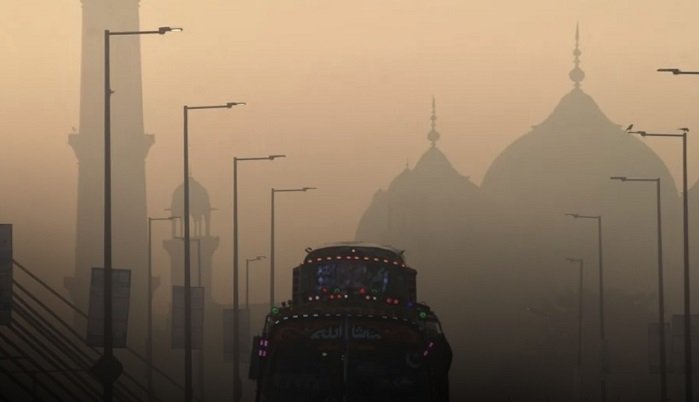The Lahore High Court (LHC) has taken significant action to combat worsening air pollution, issuing a three-page written order detailing stringent smog control measures across Punjab. The directive, issued by Justice Shahid Karim, follows petitions filed by concerned citizens including Haroon Farooq, urging stronger enforcement to reduce environmental hazards.
According to the court’s written decision, the Environment Department confirmed that no bus will be permitted to operate from any bus stand in Lahore or elsewhere in Punjab without a valid fitness certificate. This order specifically includes the Mall Road (Malik Ashraf) bus stand, where all vehicles must now undergo inspection to ensure they meet safety and emission standards before departure.
To strengthen monitoring efforts, environmental forces have been deployed at all entry and exit routes of Lahore, tasked with inspecting vehicles that emit excessive smoke. The court also instructed authorities to establish special checking points along the motorway to detect and take action against polluting vehicles.
Additionally, the High Court directed that staff be posted at construction sites to conduct regular inspections and ensure compliance with environmental Standard Operating Procedures (SOPs). The court emphasized that construction dust and unregulated machinery contribute significantly to the city’s smog problem.
The written order also noted that the Deputy Commissioner of Lahore has begun implementing earlier notifications requiring early closure of markets and restaurants at night, a measure aimed at reducing nighttime vehicular emissions and energy use.
These comprehensive directives demonstrate the court’s growing concern over Punjab’s deteriorating air quality, particularly during the peak smog season. By combining vehicle monitoring, construction oversight, and enforcement of fitness certifications, the LHC aims to build a coordinated approach toward cleaner air and environmental accountability.
The court adjourned the hearing until the next date, with further updates expected in subsequent sessions regarding enforcement progress.






